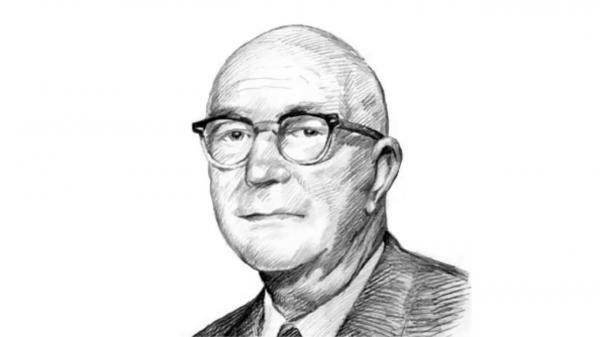
Now we move to the questions of what we want. As we have said in other articles, the "I" is what gives things their meaning. Some philosophers and psychologists suggest that the only thing that makes a person (or a living being) different from a mechanical device is a person gives meaning to things.
We give things meaning because we have desires. Because of desire, some things have value to us, and some do not; some are relevant to us, some are not; and value or relevance is just another way of talking about meaning. In this Psychology-online article we will talk about motivation and how to find motivation in life.
Index
- What is motivation
- The habit
- Higher motivations
- Liberty
- A hierarchy of needs
What is motivation.
There are several ways to psychologically view and treat motivation:
-
Behaviorists and other theorists Taking a fairly biological approach to psychology, they suggest that all of our desires boil down to the desire to survive. So our most fundamental needs are: food, water, rest, and pain avoidance. The more complex motivations are seen as derived from these by learning.
- Freudians they have a similar view, and refer to desire as libido. They, in any case, focus more on the need to survive beyond an individual's life through reproduction. Since the survival of all the needs and instincts that serve you are in fact dependent on reproduction, it is quite reasonable to make sex the key desire. The sociobiologist agrees with the Freudians on this.
- The humanists they use the word actualization, which means "the desire to maintain and improve the self." So "maintenance" certainly includes survival, since it is understood that we are referring to the survival of both the psychological self and the physical self. And "upgrade" means we do more than just try to survive.
Social creatures like us depend on each other for much of this "maintenance and improvement." One thing we need, especially early in our lives, is positive reinforcement, which means attention, affection, etc. In principle, it is a question of physical survival; later, a sign that we have support around us.

The habit.
Another aspect of motivation that is hard to overestimate is habit. If you think about it, almost everything we've talked about includes return to a de-stressed state. When we talk about physical needs, for example, we often talk about homeostasis: like a thermostat that controls an oven, we eat when we are low on nutrients, and we stop eating when we have enough.
The same can be applied to psychological phenomena: when our understanding of things is poor and we fail to anticipate, we try to improve our knowledge; once we understand something, and our anticipations hit the mark, we will be satisfied. In fact, it would almost seem that we spend our lives trying to be unconscious. After all, we feel distress when things go wrong and desire or pleasure when things get better.
Habits: unconscious attitudes
The habits are things that are so thoroughly learned, that work so smoothly, with so little distress or desire, that they are unconscious. When habits refer to social behaviors, we call them rituals. Coronations, weddings, ceremonies, funerals, queuing, taking turns speaking, saying "hi, how are you?" (whether you want to know it or not), they are all examples of rituals.
There are also always ways of thinking and perceiving that are so thoroughly learned that we tend not to be aware of them: attitudes, mental sets, norms, prejudices, defenses, etc.
The key to identifying habits and rituals is that the acts are essentially non-emotional and unconscious. Take a shower, for example: the weird thing is that you wash more or less in the same way every day, as if you were playing a computer game. You will object that the things that surround the habits or rituals can be emotional (for example, a funeral), but the things that are done also are done almost automaticallyLike driving a car, until things go wrong. When this happens, you experience some kind of distress.
Either way, keeping things as they are, maintaining law and social order, is an extremely powerful motivation. In its most positive form, it is our wish for peace and satisfaction. In its most negative form, there is our resistance to anything new or different.
Higher motivations.
At the other end of the spectrum are what we might call higher motivations, such as creativity and compassion.
There are times when we are "transported outside of ourselves" for a moment, or, to put it another way, when we feel an identification with something greater than ourselves, we feel something very great and indescribable within U.S. Many people experience those moments when they are on the edge of the Grand Canyon for the first time, or enter one of the great cathedrals of Europe for the first time. The ocean, the acropolis, the redwoods, the hummingbirds, the music, even a great book or movie can do this too. We can call it a "peak" experience, spiritual or mystical, or just call it awe.
These kinds of things also happen with certain behaviors. Climbers talk about the experience of flow, when their minds are fully occupied with the task at hand and they feel "one with the mountain." The dancers, actors, musicians and athletes they mention similar experiences of involvement.
Creative activities
Creative activities can also give us these feelings. Artists, musicians, writers, scientists, and craftsmen talk about a point at which they are driven by their creation, rather than the other way around.
And we feel it when we really are in love with someone, when they become more important than ourselves. Albert Achweiter said that only those who serve others can be truly happy. This is called compassion.
In all these examples, we see not only "maintenance and improvement of the self", but a transcendence of the self, a loss of the self that paradoxically leads to an expansion of the self. Most religions and philosophies make this their highest values.
Liberty.
There is something very peculiar about people: whereas, from the outside, it might seem as if our behaviors are completely determined by the various forces that influence us (genetics, the physical world, social pressures) we seem to be able to "withdraw" it from time to time, for a moment or two, from the flow of events. We can stop to reflect Over the things. And we can imagine and think about things that are not immediately present.
For example: sometimes a part of us (let's say our inherited physiology) wants sexual gratification, and it wants it right now. Another part of us (let's say our social upbringing) requires respect, security, virtuosity, affection, or whatever. If we are fully determined, we can just go with the strongest force, and life can be easy. Instead, we have the ability to weigh forces.
Sometimes this is an almost unconscious process. We can weigh two forces emotionally, in terms of relative anxiety and desire. But we can go back a bit and add some rational considerations, and consider things like the meaning of sin or the strangeness of being discovered. Worrying about things this way can be unpleasant, but it is a sign of our freedom of choice.
We can also create new opinions. Only people face both possibilities and realities. When things seem to be a matter of either this or that, bad whether you do it or not, we can pause and reflect, and create a third (or fourth, or fifth ...) possibility.
Even when the alternatives seem to be totally absent, some freedom remains. The writer and philosopher Jean-Paul Sartre, after facing Gestapo torture, discovered that he could always say no. At least you always have the choice of the attitude you will take towards your suffering, despite how hard it may be.

A hierarchy of needs.
It is clear that some needs are more demanding than others: if you are hungry, thirsty and short of air, you must attend to the lack of air first, water second and food third. Abraham Maslow took this idea and created his now famous hierarchy of needs. Beyond air, water and food, he established five broader layers: the physiological needs, the need security, the need for belonging, the need for esteem and the need to update the self, in that order.
- Physiological needsThese include our needs for oxygen, water, protein, salt, sugar, calcium, and other minerals and vitamins. It also includes the need to maintain a pH balance (if it becomes too acidic or basic it can kill you) and the temperature (36.5ºC more or less). In addition, there are needs to be active, to rest, to sleep, to get rid of waste (CO2, sweat, urine and feces), to avoid pain or to have sex. A good collection!
- The need for security: When physiological needs are covered, the second layer of needs comes into play. You will find yourself becoming more and more interested in finding yourself in safe circumstances, stability, protection. You might develop a need for structure, for order, some limits.
- The needs for love and belongingWhen the physiological and safety needs are, together, satisfied, a third layer begins to show. You begin to feel the need for friends, a partner, children, affective relationships in general, even a sense of community. Looked at negatively, you start to become increasingly susceptible to loneliness and social anxiety.
- The need for self-esteem: Next, we start looking for self-esteem. Maslow pointed out two types of esteem needs, one low and one high. Low self-esteem is the need for respect from others, the need for status, fame, glory, recognition, attention, reputation, appreciation, dignity, even dominance. High self-esteem includes the need for self-respect, including those emotions such as confidence, competence, achievement, mastery, independence, and freedom. Note that it is "high" because, contrary to the respect of others, once you have self-respect it is very difficult to lose it.
- Higher motivations: the last level is a little different. Maslow called it self actualization or the needs of the self. Actualization as Maslow used the term refers to the kinds of things we call higher motivations, such as creativity, compassion, appreciation of beauty, truth, justice, and so on. They differ from deficit needs in that they become a part of who you are, a part of who you are. Maslow once said that the needs of being were the desire to "be all that you can be."
If you lack motivation in life, one of these 5 categories may fail you, so you know where to start.

This article is merely informative, in Psychology-Online we do not have the power to make a diagnosis or recommend a treatment. We invite you to go to a psychologist to treat your particular case.
If you want to read more articles similar to How to find motivation in life, we recommend that you enter our category of Personal growth and self-help.


